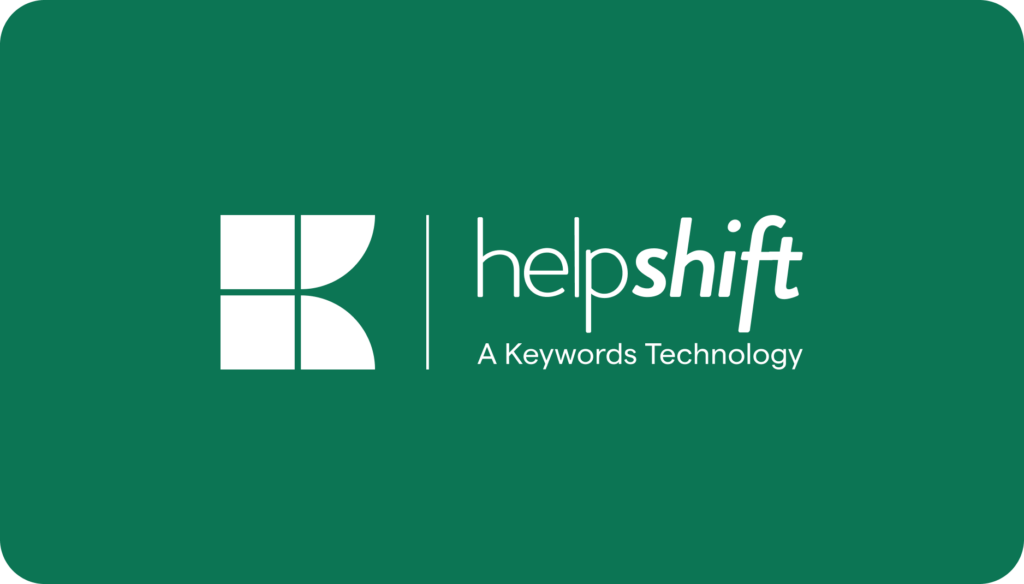Gone are the days when you want to debate the importance of having a self-service channel. Self-service is inevitable now. A recent report shows that around 81% of customers want more self-service options from the businesses they work with.
Traditionally the most common self-service customer solutions have been FAQs, knowledge bases and even communities. However, as a CX professional you wouldn’t be foreign to the troubles of these one-dimensional, prone-to-obsoletion resources that fail to address more complex customer questions.
Fortunately, AI advancements have come to rescue. Mckinsey reports that AI-enabled self-service can reduce service interactions by 40-50% and reduce cost-to-serve by 20%. AI’s capabilities in intent recognition and classification can help companies provide intuitive menus, absorb FAQ content and translate them into meaningful answers and even provide self-experiences in the customer’s native tongue.
With or without AI, self customer service is important for customers. It is no longer a “nice-to-have”. According to Salesforce’s survey, among the companies classified as high-performers, 75% of service organizations pride themselves on self customer service solutions.
It is amid these defining trends, we found it timely to write this article and unpack what it means to have an effective self-serve strategy and how to implement it in your customer service strategy.
What Is Self-Service?
Self-service, as the name suggests, means serving oneself. Consider the example of a self-service kiosk in a hotel to check in, check out, or order food. A consumer can use the kiosk to order food without waiting for a waiter.
In terms of customer service, it refers to a solution that allows consumers to find answers and solutions to their queries without the need to connect with a representative.
What Is Self Customer Service?
Self-service customer support is all about giving customers the tools they need to find answers and solve problems on their own—without waiting for a support agent.
The modern-day customer expects near-instant responses, and studies show that around 33% of consumers get frustrated when left on hold while trying to resolve an issue. To meet these expectations, companies build self service customer support system with resources like knowledge bases, AI-powered chatbots, training videos, and community forums. This not only saves customers time but also reduces frustration, making support faster, more efficient, and always available.
Key Customer Self-Service Channels
Around 90% of consumers want companies to have an online self service customer support system. But how will you implement self-service? Businesses can implement self service support across multiple channels, such as:
Knowledge Bases
Customers who want information about your products can access a knowledge base. It is an organized repository of information about your products or services. It can include guides, articles, tutorials, videos, troubleshooting tips, and more.
Knowledge bases are usually divided based on different features or categories, so finding what customers seek becomes easier.
AI Agents
AI agents are automated QuickSearch bots powered by artificial intelligence (AI). They can reply to queries in real-time speed to improve customer satisfaction scores. Around 68% of users like this response speed offered by chatbots.
Helpshift’s QuickSearch bot is one of the best available in the market. It can help customers find answers to their queries and fine-tune the help center’s search results. Moreover, AI can improve with every interaction, ensuring better results for similar questions.
Customer Communities
Getting help from a support service representative is a norm. However, communities create a space where even your customers can help each other. The community’s members can interact with each other to determine if someone else has had the same problem or has any answers. Through forums, you can also get direct feedback and gamify your content.
Product Training Videos
Many companies use product videos to educate employees during their onboarding. They can also upload the same videos on their help center platform to inform customers. Alternatively, they can create new videos around using a product, best practices, how to get the most out of it, etc.
FAQ Pages
While a knowledge base contains detailed information, FAQ pages can answer common questions briefly. It can list all the frequently asked questions and have a short, two-sentence answer. To ensure your users get answers to their queries, you can add links to knowledge base resources to the FAQ answers. This will enable the customers to get concise answers to their questions while allowing them to get detailed information from the knowledge base.
Benefits of Self Service Customer Service
Customer self-service is becoming increasingly preferred by customers and businesses because of its numerous benefits.
Elevates Customer Experience
Self service customer support empowers consumers to take control. It allows them to troubleshoot and resolve issues easily. Research suggests that 81% of customers try to solve a problem independently before contacting a representative. Giving them the control to do so can improve their overall experience.
With self service support, customers can perform various tasks on their own, including:
- Installing products
- Understanding refund policies
- Troubleshooting and resolving basic errors
- Learning basic controls, etc.
Frees Up Customer Service Agents
Self service support channels like AI chatbots can resolve 70% of the tickets without human intervention. This frees up agents who can focus on other tasks to improve customer satisfaction. Powering up this system with AI can further help deflect common queries and prioritize tickets to help agents improve their productivity.
Lets You Scale Easily
Scaling your customer service team can be costly and time-consuming. However, self service customer support can simplify this by automating several mundane tasks. Only the queries that cannot be solved through self-service support are escalated to human agents. This allows self-service platforms to handle and close increasing tickets without compromising quality.
24/7 Availability
A McKinsey & Company report says that two-thirds of millennials want real-time responses from customer service. Additionally, 75% of customers expect a consistent experience across customer service channels and interactions. This growing customer demand points out that pleasing them is not at all an easy task. Self service customer support systems let your customers access solutions to common concerns 24/7.
Use Cases for Using Self Customer Service
There are many use cases where customer self-service can be implemented without hassle. Here are some examples where you can use it.
Game Setup or Installation
A gamer who has purchased a new game will not want to connect with a human agent just for the setup. You can offer a resource in the knowledge base for quick setup and installation. By accessing a comprehensive resource that walks them through system requirements, installation walkthroughs, and common installation errors, gamers can easily set up the new title on their PC without agent help.
Gaming Account Recovery
The gaming industry is booming, and a lot of hackers have targeted gamers to get access to sensitive information. Data shows that over 4 million attacks were launched on gamers between July 2022 and July 2023. Around 30,684 attacks were masked as popular games like Roblox, Minecraft, Counter-Strike, etc.
Self service support systems can help gamers learn what they can do if they suspect malicious activities on their account. Gamers can get acquainted with recovery tools and learn how to use them to regain control of their account if a hacker has stolen them.
Troubleshooting Common Technical Issues
Whether you are playing a game or using software, technical issues are a common problem everyone faces. Users may face common problems: lag, glitches, crashing, accessibility errors, etc. Self-service support channels such as FAQs or community forums can help them troubleshoot and solve these issues.
Gameplay tips
Suppose a player is struggling to beat a boss in a game. In that case, they can access self service customer support resources like a knowledge base, community forum, etc., to read tips or watch videos to learn how to defeat the boss. Whether it’s about overcoming a difficult level or understanding gameplay, resources filled with essential tips can be extremely useful.
Learning About Accessing DLCs and Game Updates
Downloadable content (DLCs) and updates are essential to any game and top-rated franchises. Players like to get their hands on it as quickly as possible. However, many gamers often question accessing and updating this additional content on the base game. Self-service portals can offer guides and videos with clear instructions on purchasing, downloading, and installing additional content.
Resolving Warranty Issues
Games and gaming hardware often come with warranties. Self service customer support can allow gamers to learn about their game’s warranty period and rules. It can also be used to submit claims and request replacements or repairs.
Tips to Optimize Your Self Customer Service Strategy
Here are some practical tips to optimize your self-service customer support strategy:
Make It Easy to Find and Understand Answers
If the content or solutions on your self service customer support portal are not accessible, they are useless. You should use a clear and straightforward user interface to make navigation easy for all the customers. Incorporating a robust search function in the portal can be an excellent way for customers to find what they want.
Find and Bridge any Information Gap
Monitor your customers’ queries and if content can be created to answer them. Regularly reviewing the questions being asked and your content will help you identify any possible gaps. You can then update the resources to keep them relevant and according to what the customers are asking for.
You can use genAI to update resource content. GenAI has made AI accessible to even ordinary people and workers. A Deloitte study says that over 18 million people in the UK have now used genAI and are acquainted with how it works.
Offer Content in Multiple Languages
If your customer base uses more than one language to communicate, offer multiple languages. This lets you cater to diverse audiences and improve their experiences. Helpshift’s AI chatbot can perform language translation in more than 150 languages.
Offer Different Types of Media for Content
Some people like to read answers to their queries, while others prefer watching a step-by-step video. You can never know what a specific customer would like. Therefore, the best way to overcome this challenge is to offer content in different media types.
Enable Easy Escalation
AI can potentially handle all customers’ basic queries. However, it cannot respond to all complex questions. If such a situation arises, the customer should be able to find an easy way to escalate the problem to a human representative.
Measure Your Performance and Act on It
You should track key metrics of self-service customer support, such as usage rates, satisfaction scores, resolution times, how often queries were escalated to human agents, etc. Use this data to generate insights on how to proceed further to improve self service support.
Conclusion
Implementing self-service customer support can be beneficial to both customers and your agents. Customers can benefit from quick resolutions, 24/7 availability, a sense of control, etc., while agents’ productivity, efficiency, and free time will be increased.
Whatever your goals, Helpshift can offer tools to implement self service customer support in your customer service operations. From AI agents to QuickSearch bots, our straightforward tools can quickly help you set up customer service support. Click here to learn about the Helpshift experience, or speak to our representatives today and discover how we can help.
FAQs
1. Is self-service support suitable for every industry?
Self-service support is suitable for various industries, but its effectiveness can vary. For example, industries like gaming, where a lot of technical support is required, can benefit more from implementing self-service than industries like retail or telecommunications.
2. How do I balance self-service with human support?
You can balance customer self-service and human support by offering many self-service options while ensuring that human agents are readily available to take over complex questions.
3. How can companies ensure their self-service support is effective?
Companies should provide multiple channels and language options for effective self-service. Offering different channels like knowledge base, FAQs, community forums, etc., in multiple languages can make it effective.
4. Why is customer self-service important?
Customer self-service is critical because it allows consumers to find solutions quickly without connecting with or waiting for a human agent. This helps increase customer satisfaction while reducing the workload on agents, allowing them to focus on complex tasks at hand.
5. How can companies encourage customers to use self-service support?
Companies should highlight the benefits of self service customer support, such as 24/7 availability, quick resolutions, etc., to encourage consumers to use it.



